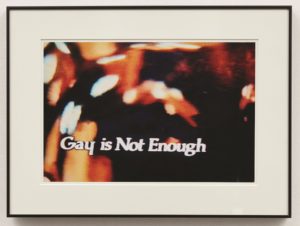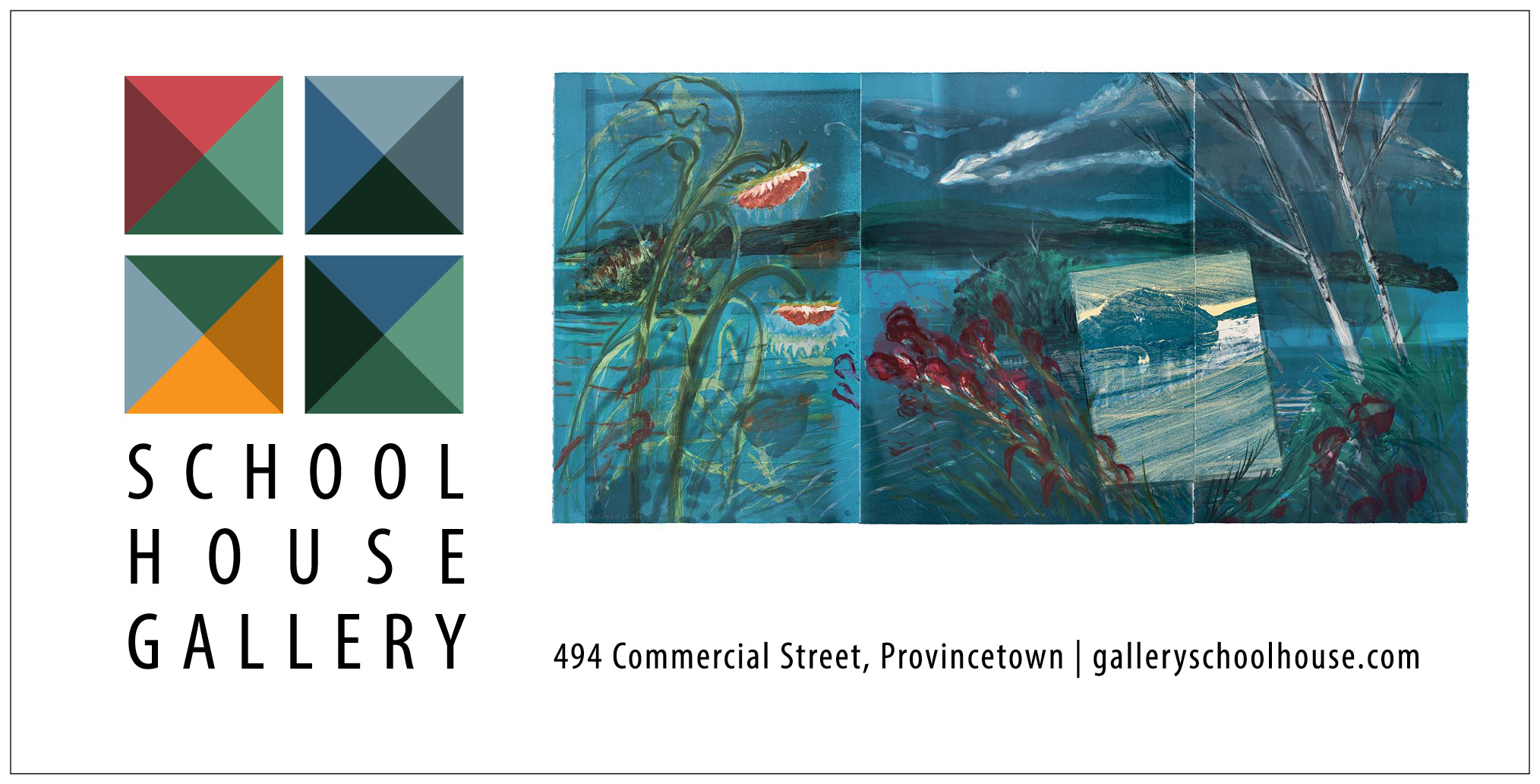Filmmaker, writer, visual artist, actor, and art collector. John Waters’s oeuvre may not be deep, but it certainly is wide. There is no confusing his artwork with anyone else’s, and after 50 years, it’s still startling. Underlying it is always his humor — twisted, defiant, scoffing at polite society.
The 17 pieces currently on display at Albert Merola Gallery through June 22 are all exquisite examples of his skewed response to, well, everything. But maybe “exquisite” is too refined a word to describe it. While all of Waters’s work is funny, it’s funny like a fart in church. As long as you’re inclined to ecclesiastical flatulence humor, his work will appeal to you.

As you walk through the gallery’s door, you are greeted by a large c-print of Waters as the Provincetown dogcatcher. The image was made long before Waters wrote Liarmouth, his latest novel, but (spoiler alert) a dog catcher turns out to be the hero in that story.
Probe, the title piece for the show, is a series of images of the Three Stooges getting, well, probed, i.e., undergoing rectal exams. “Which, as far as I know, has never been done in a movie, or even been thought of,” Waters says. “But I like the idea of that visit and how hideous it must have been.”
About Mom and Dad, Waters says, “It’s the perfect size to hang over your sofa, which is the worst thing to say in the art world. These are the most hideous mom and dad. One is a serial killer. If they’re your mom and dad, you really wouldn’t want them hanging over your sofa. Or if you did, it would make people nervous when they came over.”

Gay Is Not Enough is about as political as Waters ever gets. “Being gay is not enough,” he says. “It’s a good start, but I think there are gay jerks, and bad gay movies. Is that progress to admit it? Yes, it is.” His politics are not usually this overt; more often, they seep into his work like water rising up through a basement floor.
Baby Doll Gets Up, a sequence of stills from Baby Doll, a movie based on Tennessee Williams’s play 27 Wagons Full of Cotton, which was banned by the Catholic Church in 1956, is a gem of an example of Waters’s art. In it you can see everything that Waters is doing and what his artwork achieves.

Every time you look at a Waters, you’re looking at Waters the storyteller. “It’s about editing,” he says. “I’m taking images from other people’s movies and putting them in a completely different narrative.” He draws out “completely” for emphasis.
Always the performer, Waters at 76 still speaks with his distinctive, gravelly baritone. He is generous with his time. It’s hard to know if he’s simply a consummate businessman promoting his show or if he just enjoys talking about his work. Maybe both?

“I’m making a little movie that takes a second to look at,” he says. “It’s a half of a second of a great shot in a movie. Sometimes that’s all you need to remember a movie. You don’t have to watch the movie over and over. If you isolate it, it’s like you’ve broken into the movie and kidnapped that one second, and you take that frame away and relive it over and over on a loop. I like to celebrate obscure seconds of movies that I like.”
Where does he come up with these ideas? “It’s my job,” he says. “I’ve got my little set-up right in there.” He points to a side room at the house where he’s beginning his 58th summer in Provincetown. “I’ve been here one day. I’ll start tomorrow. Monday to Friday, 8 to 11, I think up stuff. In the afternoon I sell it. I’ve been saying that forever.
“It’s work,” Waters continues. “People ask me if I have fun. No. Fun is Friday night, going out to dinner with friends and having a drink. It’s rewarding work, and I like doing it. But I don’t go skipping into the next room, ‘la la la la la’ like a crazy person with a pen. No, I don’t skip into that room.”
Waters feels that it’s not up to him to say if he’s an artist. “I would never use that word about myself,” he says. “That is up to history to say. I’m flattered when people say it. But I wouldn’t say it about myself.”
Probe
The event: An exhibition of works by John Waters
The time: Now through June 22
The place: Albert Merola Gallery, 424 Commercial St., Provincetown
The cost: Free



